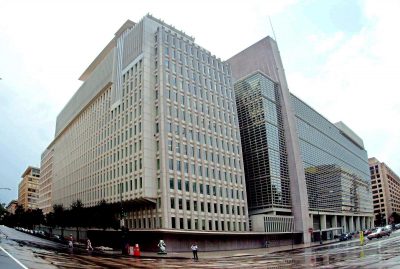The World Bank says that the Nigerian Government will need about 140billion dollars to mitigate negative impacts of climate change in the country.
Mr Benoit Bosquet, an official of the World Bank, stated this at the Climate Change Knowledge Immersion Workshop (KIW) in Abeokuta on Monday.
The workshop was organised by the World Bank in collaboration with the Federal Ministry of Environment.
Bosquet who is an environmental expert also called for stronger collaborations between the public and private sectors in Nigeria to mobilise resources and tackle the menace.
Bosquet, who is also the Practice Manager, Africa Environment and Natural Resources, noted with concern, the severe damages climate change had caused to the ecosystem and global food production.
He said Nigeria could not afford to toy with the global challenge, adding that the country would continue to get warmer by the days if the situation persisted.
However, he advised stakeholders to embrace zero deforestation, renewable energy system, good transportation, electric vehicles and low carbon industrial installation to reduce global warming.
Bosquet warned stakeholders against delaying action on greenhouse emissions, “the sooner action is taken, the lesser the cost of adaptation”.
He said that “the longer you wait, the higher the cost of adaptation”.
The Minister of State for Environment, Ibrahim Jibril, in an address at the workshop, called for support from the private sector and various state governments in tackling the menace.
He, however, said that Nigeria would issue its first sovereign N20 billion green bond by March to finance environmental-friendly projects.
This, he said, would reduce emissions and provide robust climate infrastructure like renewable energy for achieving Nigeria’s National Determined Contributions (NDCs) in line with the Paris Agreement.
He said that the Federal Government was collaborating with the private sector including the World Bank Department of International Development (DFID) and financial institutions like Nigeria Stock Exchange on the project.
The minister added that 195 countries of the world including Nigeria, had agreed through the Paris Agreement of 2015 to work towards speedily reducing the greenhouse gas emission.
“We agreed to build resilient communities against the menace of climate change so as to protect lives and livelihoods and to improve our health,” he said.
Jibril, however, explained that the Federal Government was committed to reducing greenhouse gas emissions by 20 per cent by 2030.
He added that the Federal Government was also set to implement the (NDCs) roadmaps aimed at reducing average global carbon emissions to two degree celsius.
“In achieving this, we must take proper steps to educate and engage our people as well as develop and nurture collaborations and partnership among us.
“To deliver on our NDCs pledges, there is need to have an appropriate institutional arrangement that will mainstream climate change into its development strategies,” the minister said.
The minister said that much progress had been made at the federal level in effectively engaging Ministries, Departments and Agencies of government (MDAs) on climate change.
Jubril explained that a draft guidance note on climate change for states had been developed to help in building capacity for effective state-level response to the menace.
The minister said that the workshop, among others, was aimed at initiating ideas needed by state governments to develop practical strategies for effective policy making, planning and investments towards sustainable development. (NAN)

